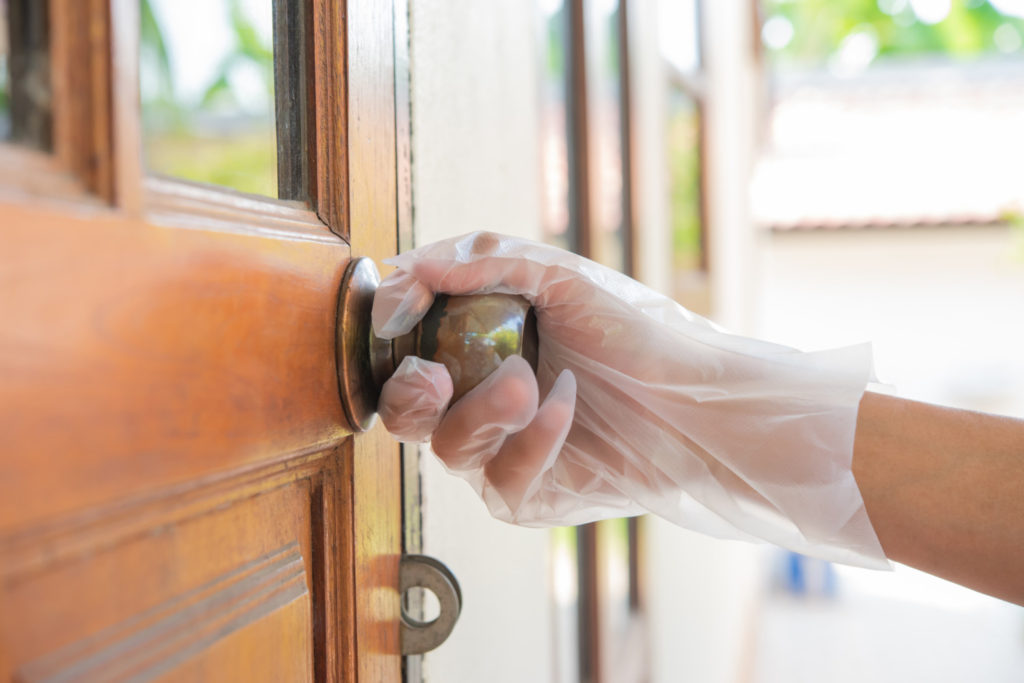The Dangers of Cross-Contamination
While navigating through these uncharted waters filled with isolation and social distancing, it is vital for everyone as well to be mindful of all possible sanitary precautions that could be taken, including any unforeseen safety hazards that can possibly jeopardize one’s health, as well as the individuals around them.
This is coming at a time when the main objective is simply to limit the mass spread of germs through any conceivable way. One sanitary risk that health organizations and scientists alike are trying to educate the public to take more provisions about is the dangers of cross-contamination.
Cross-contamination is fundamentally defined as when bacteria and viruses are transferred from surfaces to other places where it could then spread even more. It is commonly known in the food industry, where anything from an unwashed chopping board or even utensils can infect already prepared food, and therefore, people who consume it too.
However, it also applies to our everyday life now, especially since a significant number of individuals are falling for the common misconception that gloves are perfectly sanitary to use now, more importantly, to protect themselves while in contaminated public settings. Unfortunately, that has been proven wrong by multiple health experts, and in fact, is shown to have the opposite effect. Naturally, cross-contamination applies to this scenario as well.
The bottom line is that there are germs in everything, and when people wear gloves they’re combining the bacteria of all the items they touch or grasp and transferring it somewhere else. This can be dangerous for whoever comes in contact with those surfaces or objects later, and this is not even mentioning the luring risk of touching your face or items in your home. Without the proper precautions, your gloves may be inviting germs into your home.
“I’m seeing a lot of people out in public wearing gloves right now. That’s great. If you want to wear gloves, that’s all fine and well, you absolutely can. But I want to remind you of a little thing called cross-contamination,” said Michigan clinician Molly Lixey.
In the video that recently surfaced on YouTube, Lixey used paint to demonstrate how rapid anything that she contacted could be exposed to a great amount of bacterium when one is at the store.
She started off by pointing out the fact that our phones are proven to be the most unsanitary item we have and even referred to it as a “germ-bomb”. After painting a sizeable print on the fingers of her gloves, she touched a paper plate that was supposed to represent toilet paper, she then got a makeshift phone made of cardboard and proceeded to send a quick text. After this text, she put paint on the phone. She then acted as if her nose itched which then prompted her to scratch her nose. Following that, she took a phone call which meant that all the germs on her phone were now spread across her face. By the end of the video, her face was covered in pain.
The video then concluded with her taking off the gloves, with her clean hands that immediately became ‘dirty’ after she touched her tainted phone. This is the very definition of cross-contamination and shows how wearing gloves irresponsibly may enhance someone’s chance of getting many infected, not the opposite. She then thoroughly elaborated on why it is essential to not get caught up in that misapprehension, especially under the circumstances that the world is being presented with now.
Towards the end of the video, she also reminded people that if they were going to use gloves, to remember to throw it away in a trash bin, as another highly voiced concern in light of the Covid-19 spread is the sight of numerous pairs of gloves being thrown and left in grocery store parking lots.
“It terrifies me to think people believe they’re safe only because they are wearing gloves and not have them be aware that they could still be harming themselves or others”
Lixey suggests that to be safe when leaving the house for essentials is to avoid contact with your cell phone and other possibly contaminated surfaces before washing your hands.
“In this time of panic and uncertainty, it is understandable that people have tried to stick with that they think is safe,” wrote Marion Brooks of NBC Chicago. However, as previously stated scientists and medical experts have given out essential sanitary rules and regulations for the public to follow and as a result, stay healthy. Most importantly, to slow the spread of bacteria and probable diseases to everyone else around them, mainly those who can really suffer from it.
You may be interested
Farewell From the 2024-25 Editor-in-Chief
Kat Torres - May 29, 2025Finding the words to express how I truly feel has been more difficult than I expected. How do you begin to say goodbye…

The Heart and Soul of Our School
Daniella Prieto - May 29, 2025At John A. Ferguson, some of the most meaningful work is happening quietly, all through structure, patience, and consistency. Inside the ASD (Autism…

Chick-fil-A vs. Raising Cane’s: A Clash of Chicken Titans
Kristen Almendral - May 27, 2025There have been debates recently over two fast food chains: Chick-fil-A and Raising Cane’s. Both chains are favorites among many. These fast-food chains…
Most from this category

Exciting Summer Getaway Destinations
Tehreem Chaudhry - May 22, 2025
The Chilly Challenge of the Ferguson Classroom
Leydi Morales - May 20, 2025
















